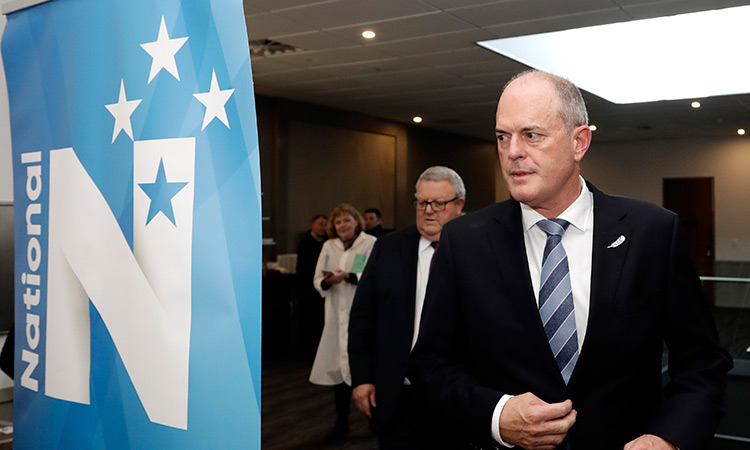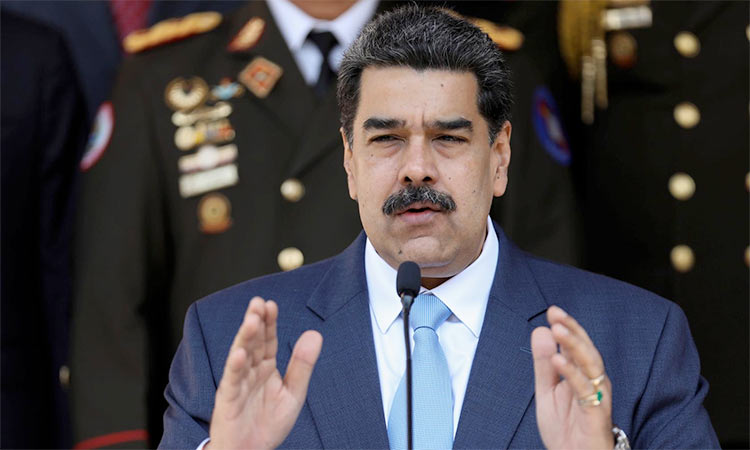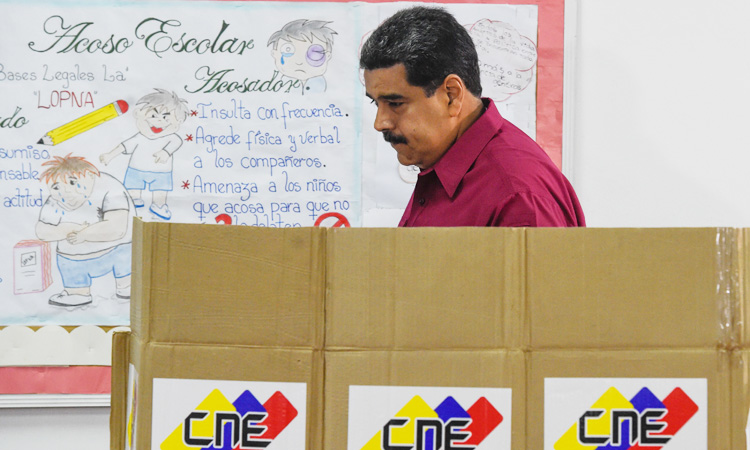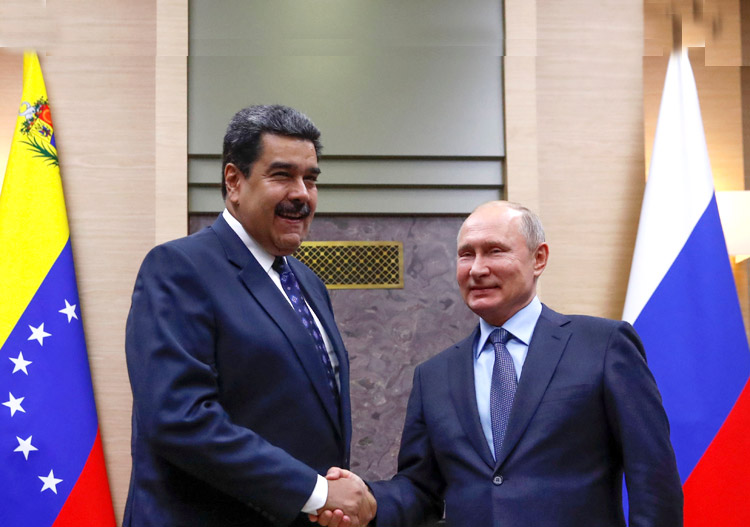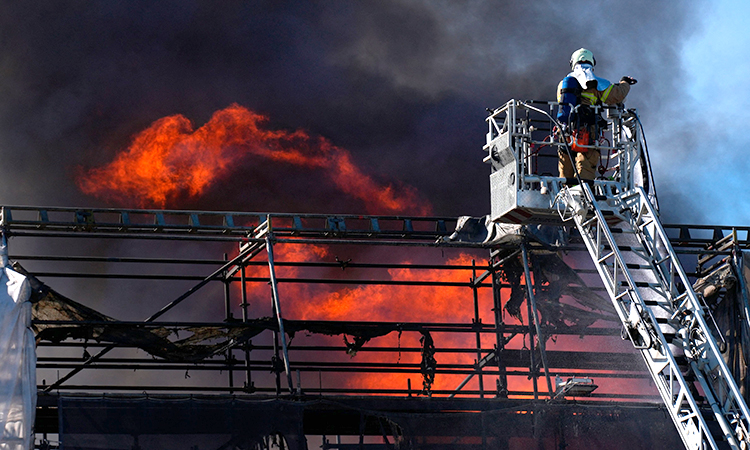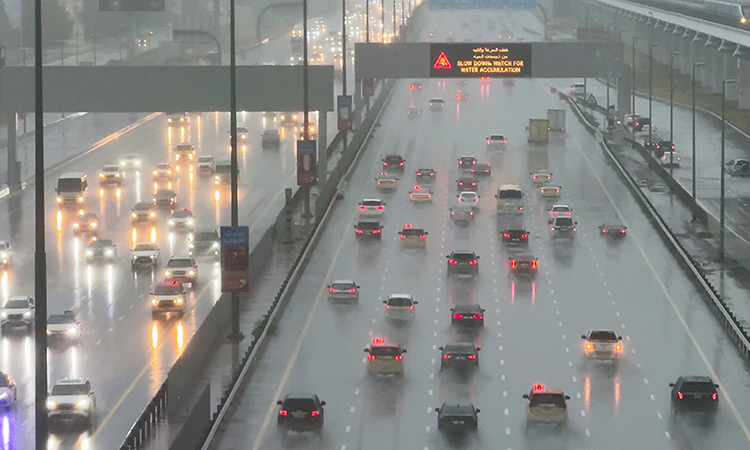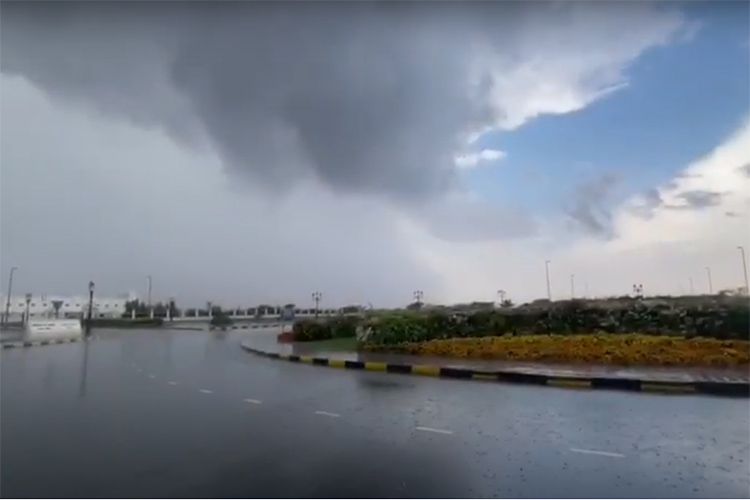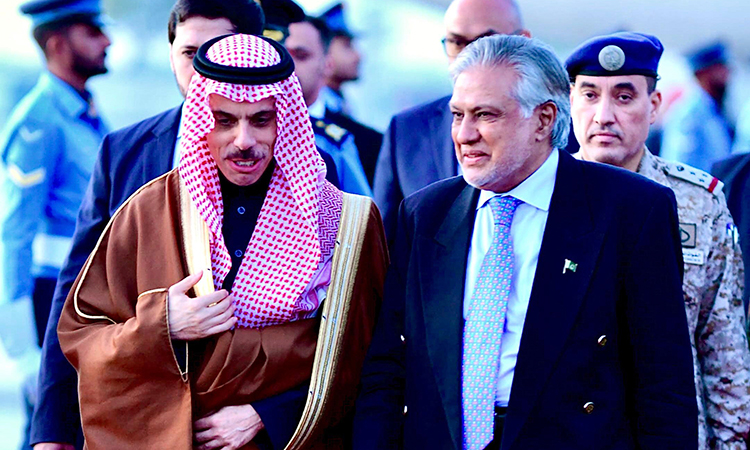Guaido calls for biggest rally in history on May 1
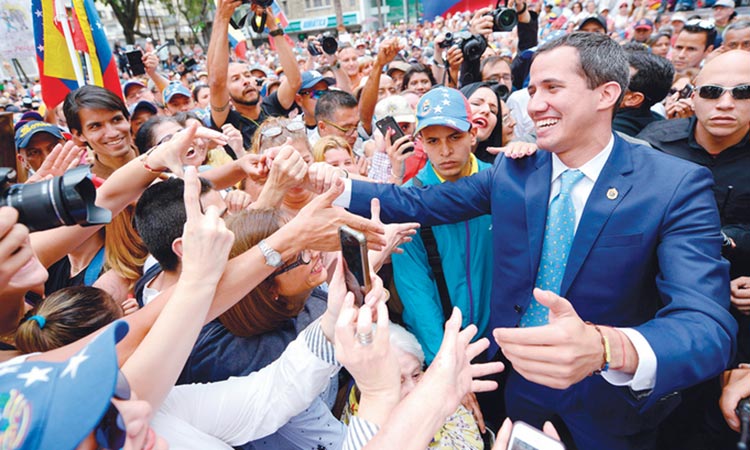
Juan Guaido greets supporters during a meeting at Chacao neighbourhood in Caracas on Friday. Agence France-Presse
The National Assembly head launched a challenge to Maduro’s authority in January, declaring himself acting president.
Despite the support of more than 50 countries, including the United States, Guaido has been unable to dislodge Maduro, who retains the backing of the country’s powerful military.
“We call on all the people of Venezuela to take part in the biggest demonstration in this country’s history on May 1 to demand the usurpation ends definitively,” said Guaido, addressing several hundred supporters at a rally in Caracas.
Guaido, 35, and the National Assembly have branded Maduro a “usurper” over his controversial re-election last year in polls widely viewed as rigged.
“Miraflores! Miraflores!” chanted supporters in reference to the presidential palace where Maduro lives.
The march will take place on Labor Day when the socialist government holds its own major street event to commemorate the reign of Maduro’s predecessor Hugo Chavez.
Guaido has regularly called on his supporters to rally against Maduro, motivating tens of thousands to take to the streets.
But he failed in a bid to force into the country humanitarian aid stockpiled over the border in Colombia after the military blockaded a bridge crossing.
The issue of humanitarian aid has formed a key battleground in the power struggle between Guaido and Maduro, with the president so far holding firm and preventing his rival from landing a strategic blow by undermining the socialist leader’s authority.
Maduro, 56, refused to allow in the aid claiming it was a smokescreen for a US-led invasion.
However, earlier this week he let the Red Cross bring in medical supplies to distribute to hospitals and outpatient clinics.
Venezuela has suffered more than four years of recession marked by shortages of basic necessities such as food and medicine.
The United Nations says a quarter of its 30 million population is in urgent need of aid.
Meanwhile, a second shipment of Red Cross humanitarian aid will arrive in Venezuela in around three weeks, the charity organisation said recently, reiterating its plea for the issue not to be politicized.
“There’s a shipment coming by sea that we expect to be in the country on May 8,” said Hernan Bongioanni, the Red Cross commissioner for this mission.
He was speaking to the press as surgical equipment, analgesics and antibiotics were delivered to a hospital in Caracas.
The first aid shipment arrived by plane from Panama on Tuesday to the Maiquetia international airport that serves Venezuela’s capital.
Bongioanni said this delivery of surgical equipment would be used to treat 10,000 people in an initial phase of a project expected to benefit 650,000 Venezuelans.
Local Red Cross president Mario Villarroel reiterated his call on Maduro and his political challenger Guaido not to use the aid issue in their power struggle.
“Every time there’s an attempt to politicize this aid it prejudices the work we’re doing,” said Villarroel.
Desperately needed humanitarian aid has taken center stage in the stand-off between Maduro and Guaido, the president of the National Assembly legislature.
Despite a highly-publicised campaign, Guaido, who launched a challenge to Maduro’s authority in January, has failed to force humanitarian aid stockpiled over the border in Colombia into the country.
The armed forces, which are loyal to Maduro, blockaded a bridge crossing to prevent the entry of aid, which Maduro claimed was a smokescreen to cover a US-led invasion.
That aid was mostly supplied by the United States, one of more than 50 countries to have recognized Guaido as Venezuela’s interim leader after rejecting Maduro’s widely criticized re-election last year.
The Red Cross supplies have been allowed in following an agreement reached between the international organization and Maduro.
Venezuela has suffered more than four years of recession marked by shortages of basic necessities such as food and medicine.
Agencies
